Text
Funding Available to Improve Railroad Infrastructure and Safety

The U.S. Department of Transportation (DOT) Consolidated Rail Infrastructure and Safety (CRISI) Program is offering funding with no predetermined award maximum for projects focused on improving the safety, efficiency, and reliability of intercity passenger and freight rail. Competitive applications include railroad infrastructure projects that improve safety, support economic vitality (including through small businesses), create good-paying jobs, increase capacity and supply chain resilience, apply innovative technology, and explicitly address climate change, gender equity, and racial equity. CRISI projects may include planning, development, design, and implementation of intercity passenger and freight rail improvement projects for the following activities:
Deployment of railroad safety technology, including positive train control and rail integrity inspection systems;
A capital project identified by the Secretary as being necessary to reduce congestion and facilitate ridership growth in intercity passenger rail transportation along heavily traveled rail corridors;
A highway-rail grade crossing improvement project, including installation, repair, or improvement of grade separations, railroad crossing signals, gates, and related technologies, highway traffic signalization, highway lighting and crossing approach signage, roadway improvements such as medians or other barriers, railroad crossing panels and surfaces, and safety engineering improvements to reduce risk in quiet zones or potential quiet zones;
A rail line relocation or improvement project;
The development and implementation of a safety program or institute designed to improve rail safety;
Rehabilitating, remanufacturing, procuring, or overhauling locomotives, provided that such activities result in a significant reduction of emissions.
There is no funding limit for a request CRISI requests; however, applicants are encouraged to request at least $1 million in funding. Eligible applicants include States, a group of States, Interstate Compacts, public agencies or publicly chartered authorities established by one or more States, political subdivisions of a State, Amtrak or other rail carriers that provide intercity transportation, federally recognized Native Tribes, any rail carrier or rail equipment manufacturer in partnership with at least one of the previously listed entities, Transportation Research Boards, University transportation centers engaged in rail-related research, or non-profit labor organizations representing a class or craft of employees or rail carriers or rail carrier contracts. A 20% match is required.
Applications for the CRISI grant program are due by May 28, 2024.
For more information about how Sustainable Strategies DC can help your community with a DOT CRISI grant application, please contact Sarah Marin at (202) 308-7125. For additional information on other funding opportunities, please click here for our website.
0 notes
Text
Funding Available to Improve Community Policing Strategies
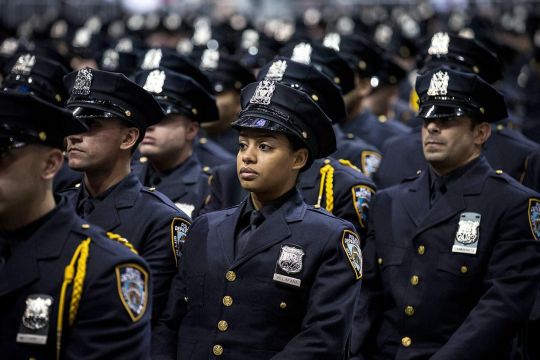
The U.S. Department Of Justice (DOJ) Community Policing Development (CPD) Microgrants Program is offering up to $175,000 to demonstrate or pilot projects that offer creative ideas to advance crime fighting, community engagement, problem solving, or organizational change in support of community policing. Applicants must address one of the five designated categories to be considered for funding. These categories include:
Community Violence Intervention projects should develop and enhance programs that engage the community in violence reduction efforts including street outreach, violence interrupters, hospital-based interventions, group violence interventions, and other strategies that provide wraparound services to communities.
Officer Recruitment and Retention projects should establish demonstration or pilot projects with creative methods for recruitment and retention that include quantitative measures of success.
Hate Crimes and Domestic Extremism projects should develop or enhance programs that aid in the prevention of and response to hate crimes and domestic extremism.
Underserved Populations projects should develop or enhance programs that meet the needs of underserved populations. This includes youth, older adults, communities of color, persons experiencing homelessness, LGBTQ+ individuals, persons with disabilities, undocumented immigrants, and persons in economically disadvantaged situations.
Building Trust and Legitimacy with the Community projects should develop or enhance programs that focus on building trust and legitimacy between law enforcement and the communities they serve.
Eligible applicants include law enforcement agencies, State law enforcement agencies, federally recognized Native American tribes and their public agencies, and Territorial law enforcement agencies. No match is required.
Applications for the CPD Microgrants program are due by May 14, 2024.
For more information about how Sustainable Strategies DC can help your community with a DOJ CPD Microgrant application, please contact Sarah Marin at (202) 308-7125. For additional information on other funding opportunities, please click here for our website.
0 notes
Text
Funding Available for Major Transportation Projects
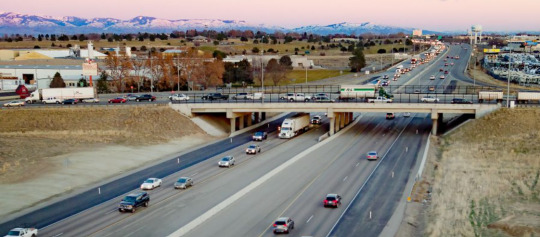
The U.S. Department of Transportation (DOT) Multimodal Project Discretionary Grant (MPDG) program, a combined solicitation for three grant opportunities, is offering funding to support major surface transportation projects with significant national or regional impact, or to improve and expand the surface transportation infrastructure in rural areas. These opportunities include:
The National Infrastructure Project Assistance (Mega) program is offering grants of $100 million or more to support large, complex projects that are difficult to fund through traditional funding programs. Eligible projects include, but are not limited to, highway, bridge, freight, port, passenger rail, and public transportation projects of national or regional significance. Mega grants require a 40% match, 20% of which may be from other federal resources.
The Infrastructure for Rebuilding America (INFRA) program is offering grants of $5+ million to support multimodal freight and highway projects of national or regional significance to improve critical people and freight movement in and across rural and urban areas. Eligible projects should improve safety, generate economic benefits, reduce congestion, enhance resiliency, eliminate supply chain bottlenecks, and improve freight movements. INFRA grants require a 40% match, 20% of which may be from other federal sources.
The Rural Surface Transportation Grant (Rural) program is offering grants with no minimum or maximum award requirements to support projects that improve and expand surface transportation infrastructure in rural areas to increase connectivity, improve the safety and reliability of the movement of people and freight, generate regional economic growth, and improve quality of life. Eligible projects include highway, bridge, and tunnel projects that support the economy of a rural area. Rural grants require a 20% match, except for projects that further the completion of a designated segment of the Appalachian Development Highway System or the Denali Access system program, which may apply for up to 100% of the project costs. Other federal assistance may satisfy the non-Rural share requirement up to 100% of project costs.
Eligible applicants for each program include States, metropolitan planning organizations (Mega and INFRA), regional transportation organizations (Rural), units of local government, tribal governments or consortiums of tribal governments, or a multi-jurisdictional group of eligible entities. Additional eligible applicants for the Mega program include special purpose districts or public authorities with a transportation function and partnerships between Amtrak and one or more other eligible entity. Additional applicants for the INFRA program include special purpose districts or public authorities with a transportation function, federal land management agencies that apply jointly with a State or group of States, and multistate corridor organizations.
Applications for all three DOT Multimodal Project Discretionary Grant programs, including the Mega, INFRA, and Rural programs are due by May 6, 2024.
For more information about how Sustainable Strategies DC can help your community with a DOT MPDG grant application, please contact Sarah Marin at (202) 308-7125. For additional information on other funding opportunities, please click here for our website.
0 notes
Text
Funding Available to Support Fire Department Staffing and Community Fire Prevention Initiatives
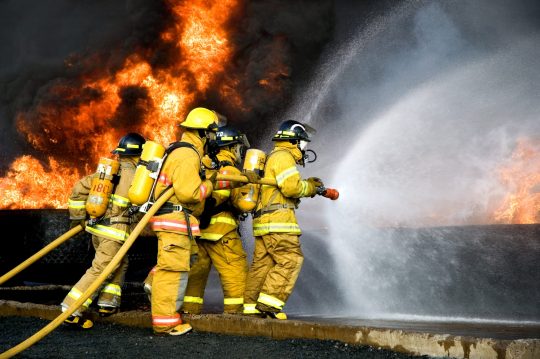
The Federal Emergency Management Agency (FEMA) Staffing for Adequate Fire and Emergency Response (SAFER) Grant Program & Fire Prevention and Safety (FP&S) Program are offering grant funding to enhance safety around fire and fire-related hazards. SAFER grants are intended to increase the number of firefighters in communities, while FP&S funds support fire risk reduction and prevention programs and research.
SAFER Grant Program (no maximum award) will support the hiring of career firefighters or the recruitment and retention of volunteer firefighters to help communities meet industry minimum standards and attain 24-hour staffing to provide adequate protection from fire and fire-related hazards. SAFER offers grants to support activities in two categories:
The Hiring of Firefighters category supports the hiring of new, additional career firefighters to improve staffing levels, change the status of firefighters who are part-time or paid-on-call to full-time, rehire laid off firefighters, or retain firefighters facing layoff. Eligible applicants include combination and career fire departments.
The Recruitment and Retention of Volunteer Firefighters category will assist fire departments with the recruitment and retention of volunteer firefighters who are involved with or trained in the operations of firefighting and emergency response. Eligible applicants include volunteer and combination fire departments as well as nonprofit organizations representing the interests of volunteer firefighters.
No match is required for SAFER grants.
FP&S Grant Program (up to $1.5 million) will support community fire prevention and risk reduction programs and firefighter health and scientific research on innovations that improve firefighter safety, health, and well-being. The program offers funding in two categories:
Fire Prevention and Safety Activities should reach high-risk target groups and mitigate the incidence of death and injuries caused by fire and fire-related hazards. Projects must full under one or more of the following categories: community risk reduction; wildfire risk reduction; code enforcement/awareness; fire and arson investigation, and; national/state/regional programs and projects.
Research and Development Activities should improve firefighter safety, health, or well-being through research and development that reduces firefighter fatalities and injuries. Projects must fall under one or more of the following categories: clinical studies; technology and product development; database system development; preliminary studies; early career investigator.
Eligible applicants include City or township governments; county governments; federally recognized Tribal governments; nonprofits; public, private, and state controlled institutions of higher learning, and; fire departments. A 5% match is required for FP&S grants.
Applications for both the FEMA SAFER program and FEMA FP&S program are due by April 12, 2024.
For more information about how Sustainable Strategies DC can help your community with a FEMA SAFER or FP&S grant application, please contact Sarah Marin at (202) 308-7125. For additional information on other funding opportunities, please click here for our website.
0 notes
Text
Funding Available to Develop and Expand Local Food and Farmer's Markets

The U.S. Department of Agriculture (USDA) Local Food Promotion Program & Farmers Market Promotion Program are offering grants of up to $500,000 to develop, coordinate, and expand local and regional food business enterprises and direct producer-to-consumer markets to help increase access to, and availability of, locally and regionally produced agricultural products.
Local Food Promotion Program Grants (up to $500,000) will support Planning (up to $100,000) and Implementation (up to $500,000) projects that develop and expand food business enterprises that engage as intermediaries in indirect producer-to-consumer markets. Eligible activities include, but are not limited to:
Supporting the processing, aggregation, distribution, and storage of local and regional food products that are marketed locally or regionally, including value-added agricultural products;
Encouraging the development of value-added agricultural products;
Assisting with business development plans and feasibility studies;
Developing marketing strategies for producers of local good and value-added products;
Facilitating regional food chain coordination and mid-tier value chain development.
Farmers Market Promotion Program Grants (up to $500,000) will support Capacity Building (up to $250,000) and Community Development Training and Technical Assistance (up to $500,000) projects for farmers market development and expansion activities.
Capacity Building projects are intended to assist farm and ranch operations serving local markets to build long-term organizational capacity. Projects include, but are not limited to, market analysis and strategic planning, online sales operation or expansion, and producer and consumer outreach.
Community Development Training and Technical Assistance projects seek to provide outreach, training, and technical assistance for direct producer-to-consumer activities. Eligible projects include, but are not limited to, producer marketing and promotion assistance, producer-to-consumer networks and organizations, and technical assistance to support small- and mid-sized producers in compliance with regulatory and buyer requirements for direct marketing opportunities.
Applicants under both programs may also apply for Turkney Marketing and Promotion projects and Turkney Recruitment and Training projects for marketing and recruitment funding support. Competitive applications will benefit underserved communities and carry out eligible activities under a partnership agreement as part of the AMS Regional Food Systems Partnership program.
Eligible applicants include agricultural businesses or cooperatives, producer networks or associations, CSA networks or associations, food councils, local governments, nonprofit organizations, public benefit corporations, economic development corporations, regional farmers market authorities, and Tribal governments. A 25% match is required.
Applications for the USDA Local Food Promotion Program and Farmers Market Promotion Program are due by May 14, 2024.
For more information about how Sustainable Strategies DC can help your community with a USDA Local Food Promotion or Farmers Market Promotion grant application, please contact Sarah Marin at (202) 308-7125. For additional information on other funding opportunities, please click here for our website.
1 note
·
View note
Text
Funding Available to Improve Roadway Safety
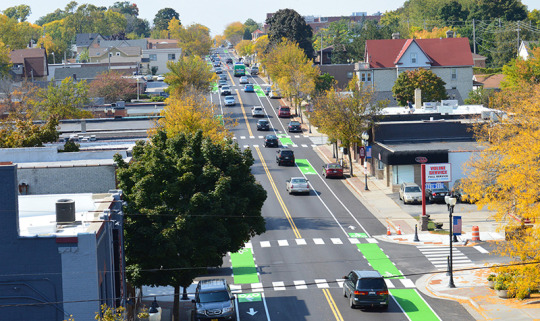
The U.S. Department of Transportation (DOT) Safe Streets and Roads for All (SS4A) Grant Program is offering grants of up to $25 million to develop the tools and implement solutions needed to address roadway safety concerns and save lives. The program supports planning, infrastructure, behavioral, and operational initiatives to prevent death and serious injury involving all roadway users, including pedestrians, bicyclists, public transportation, personal conveyance, micro-mobility users, and commercial vehicle operators. The SS4A program offers two types of grants:
Planning and Demonstration Grants ($100,000 - $10 million) to develop, complete, or supplement a comprehensive Safety Action Plan as well as carry out demonstration activities that inform an Action Plan.
Action Plans should include strategies to improve roadway safety within a community. Examples include methods of improving progress and transparency public engagement and collaboration, expanding data collection and evaluation, and conducting targeted equity assessments.
Demonstration funds can be used to pilot strategies and approaches outlined in an existing Action Plan.
Implementation Grants ($2.5 million - $25 million) to fund projects and strategies identified in a comprehensive Safety Action Plan that address roadway safety problems. Applicants as well as undertake supplemental action planning and demonstration activities. Applicants must have an established Action Plan to apply for implementation funding.
Eligible applicants include metropolitan planning organizations, political subdivisions of a State, federally recognized Tribal governments, and multi-jurisdictional groups comprised of individually eligible entities. A 20% match is required for all funding types.
Applications for the Safe Streets and Roads for All program Planning and Demonstration Grants are due April 4, 2024, May 16, 2024, and August 29, 2024. Applications for Implementation Grants are due by May 16, 2024.
For more information about how Sustainable Strategies DC can help your community with a DOT Safe Streets and Roads for All application, please contact Sarah Marin at (202) 308-7125. For additional information on other funding opportunities, please click here for our website.
1 note
·
View note
Text
Funding Available to Enhance Urban Production and Food Access
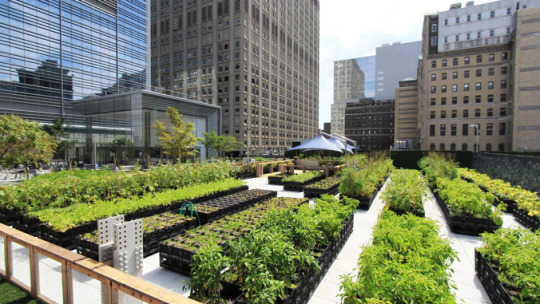
The U.S. Department of Agriculture (USDA) Urban Agriculture and Innovative Production (UAIP) Program is offering grants up to $350,000 to improve access to local foods in areas where access to fresh, healthy food is limited or unavailable through urban and/or innovative agricultural practices. Projects may target areas of food access education; business and start-up costs for new farmers; and development of policies related to zoning and other needs of urban production. Two types of grants are offered:
Planning Projects (up to $350,000) initiate or expand efforts of farmers, gardeners, citizens, government officials, schools, and other stakeholders in urban areas and suburbs where access to fresh foods are limited or unavailable. Eligible activities include:
Assessing community needs within the local food system
Researching how food is grown, distributed, or marketed and/or recommending safe growing practices such as soil tests and environmental assessments
Evaluating how urban agriculture and innovative production can address issues of food access, nutrition, education, conservation, and economic development
Creating partnerships to improve growing, distributing and marketing of nutritious food
Conducting business planning, feasibility studies, and other strategies, such as community resource development
Implementation Projects (up to $350,000) accelerate existing and emerging models of urban, indoor, and other agricultural practices that serve multiple farmers. Eligible activities include:
Increasing food production
Promoting agricultural businesses
Providing mentoring, job training, and resources for underserved populations
Implementing best practices to address food access, zoning, land access, and soil health
Integrating emerging technologies and infrastructure needs (such as access to water and utilities)
Eligible applicants include nonprofits, local governments, Tribal governments and organizations, and schools. No match is required.
Applications for the UAIP Program are due by April 9, 2024.
For more information about how Sustainable Strategies DC can help your community with a USDA UAIP application, please contact Sarah Marin at (202) 308-7125. For additional information on other funding opportunities, please click here for our website.
2 notes
·
View notes
Text
Funding Available for Buses and Bus Facilities Programs
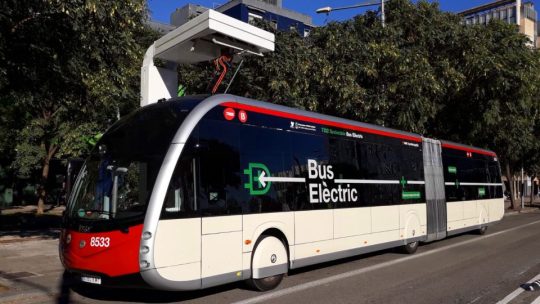
The U.S. Department of Transportation (DOT) Federal Transit Authority (FTA) Low or No Emission Vehicle (Low-No) and Buses & Bus Facilities Program are offering large grants for the purchase or lease of zero-emission and low-emission transit buses, including the acquisition, construction, and leasing of required supporting facilities such as recharging, refueling, and maintenance facilities.
Projects should support the transition of fixed-route bus service to the lowest polluting and most energy efficient transit vehicles. Eligible projects under the Low-No Program (no maximum ask) include:
Purchasing or leasing low- or no-emission buses
Acquiring low- or no-emission buses with a leased power source
Constructing or leasing facilities and related equipment (including intelligent technology and software) for low- or no-emission buses
Constructing new public transportation for facilities to accommodate low- or no-emission buses
Rehabilitating or improving existing public transportation facilities to accommodate low- or no-emission buses
Eligible projects under the Buses & Bus Facilities Program (up to $3.9 million) include:
The replacement, rehabilitation, and purchase of buses, vans, and related equipment, and;
The construction of bus-related facilities, including technological innovations to modify low or no emission vehicles or facilities.
Eligible applicants for both programs include direct or designated recipients of FTA grants operating fixed-route bus serviceStates, local governmental authorities, and Indian Tribes. Proposals for projects in rural areas must be submitted as part of a consolidated state proposal. States and other eligible applicants also may submit consolidated proposals for projects in urban areas. A 15% match is required for leasing or purchasing a low or no emission transit bus. A 10% match is required for leasing or acquiring low- or no-emission bus-related equipment and facilities.
Applications for both the Low-No program and the Buses & Bus Facilities program are due by April 25, 2024.
For more information about how Sustainable Strategies DC can help your community with an FTA Low-No or Buses & Bus Facilities application, please contact Sarah Marin at (202) 308-7125. For additional information on other funding opportunities, please click here for our website.
1 note
·
View note
Text
Funding Available to Support Economic Development in Coal-Impacted Communities

The Appalachian Regional Commission (ARC) Partnerships for Opportunity and Workforce and Economic Revitalization (POWER) program is offering grants of up to $2 million to strengthen the economies of Appalachia's coal communities. Funding will support projects that advance economic diversity, enhance job training and re-employment opportunities, create jobs in existing or new industries, and/or attract new sources of investment in communities affected by job losses in coal and coal-related industries.
Applicants may apply for a planning (up to $50,000) or implementation (up to must $2 million) grant. Applications for both planning and implementation must address one or more POWER strategic investment goals:
Fostering Entrepreneurial Activities that increase access to capital; create, support, and grow entrepreneurial ecosystems; develop and deploy entrepreneurship education programs, and; invest in a region's natural and cultural assets.
Developing Industry Clusters in Communities that support small manufacturing companies for product and market diversification, and expand and bolster entrepreneurial talent that supports the creation of strategic industry clusters
Building a Competitive Workforce through workforce training that supports opportunities for upward mobility, increases labor participation rates, and demonstrates demand for a particular skillset
Broadband: Build broadband capacity, deployment, and service
Eligible applicants include local development districts (LDDs), Indian tribes or a consortium of Indian tribes, states, counties, units of local government, special purpose units or political subdivisions of a state or local government engaged in economic or infrastructure development activities, consortiums of political subdivisions, institutions of higher education or a consortium of institutions of higher education, and public or private nonprofit organizations. Match levels vary based on the project service area. All projects must serve and benefit a portion of the Appalachian Region (click here for a map).
A required letter of intent is due March 1, 2024. Full applications for the ARC POWER program are due by April 17, 2024.
For more information about how Sustainable Strategies DC can help your community with an ARC POWER application, please contact Sarah Marin at (202) 308-7125. For additional information on other funding opportunities, please click here for our website.
0 notes
Text
Funding Available to Improve Firefighter and Community Safety

The Federal Emergency Management Agency (FEMA) Assistance to Firefighters Grant (AFG) Program is offering up to $9 million to enhance the safety of the public and firefighters with respect to fire and fire-related hazards. The AFG program is intended to help firefighters and other first responders obtain critically needed equipment, protective gear, emergency vehicles, training, and other resources needed to achieve recognized NFPA standards, enhance operational efficiencies, foster interoperability, and support community resilience by protecting the public and emergency personnel.
The population of the jurisdiction served by the applicant will determine the maximum amount of funding an organization is eligible to receive, ranging from up to $1 million for jurisdictions serving 100,000 people or less, to up to $3.2 million for jurisdictions of 1 million or more. FEMA may also waive this cap in instances of extraordinary need.
Volunteer and career fire departments, nonaffiliated EMS organizations, and State Fire Training Academies and federally recognized Native tribes are all welcome to apply. Non-federal, cash matching requirements of 5% to 15% are determined by the size of the communities served.
Applications for the Assistance to Firefighters Grant program will open January 29th and are due by March 8, 2024.
For more information about how Sustainable Strategies DC can help your community with a FEMA AFG application, please contact Sarah Marin at (202) 308-7125. For additional information on other funding opportunities, please click here for our website.
0 notes
Text
Funding Available for Substance Use Disorder Recovery-to-Work Projects

The Appalachian Regional Commission (ARC) Investments Supporting Partnerships in Recovery Ecosystems (INSPIRE) Initiative is offering up to $500,0000 to support projects in Appalachia that create or expand a recovery ecosystem that will lead to workforce entry or re-entry for those suffering from substance use disorder (SUD). Successful projects will support the post-treatment to employment continuum, which could include investments in healthcare networks that support SUD recovery professionals, recovery-focused job training programs, as well as initiatives designed to coordinate, or link, recovery services and training that support the recovery to work ecosystem.
Applicants may apply for a planning grant (up to $50,000) to develop plans and strategies for expanding or creating a recovery ecosystem, or an implementation grant (up to $500,000) to support programmatic delivery as well as minor construction. Eligible activities may include, but are not limited to:
Peer support systems
Health/behavioral health networks that support SUD recovery
Job and vocational skills training programs that have a demonstrated focus on serving those in recovery and incorporate recovery services
Recovery-to-work support services including transportation, housing, childcare solutions, and soft and hard skills development
Developing strategies/plans for strengthening partnerships/coalitions/consortia with the addition of new partners
Community needs assessments, workforce modeling, gap analysis, or other research-based practices to determine gaps, challenges, and/or future workforce demands
Developing a short-term/long-term training and employment readiness and retention plans
Developing employer education programs, service delivery and sustainability plans
Eligible applicants include local development districts; Indian tribes or a consortium of Indian tribes; states, counties, cities, or other political subdivisions of a state, including a special purpose unit of a state or local government engaged in economic or infrastructure development activities, or a consortium of political subdivisions; institutions of higher education or a consortium of institutions of higher education; and, public or private nonprofit organizations or associations. Applicants must be located in the Appalachian region (click here for a map). A non-federal match is required. Match levels are determined by the service area level of distress, ranging from 20% to 50%.
A required Letter of Intent is due February 16, 2024. Applications for the INSPIRE Initiative are due by March 8, 2024.
For more information about how Sustainable Strategies DC can help your community with an ARC INSPIRE application, please contact Sarah Marin at (202) 308-7125. For additional information on other funding opportunities, please click here for our website.
0 notes
Text
Funding Available to Improve Firefighter Safety

The Federal Emergency Management Agency (FEMA) Assistance to Firefighters Grant (AFG) Program is offering up to $9 million to enhance the safety of the public and firefighters with respect to fire and fire-related hazards. The AFG program is intended to help firefighters and other first responders obtain critically needed equipment, protective gear, emergency vehicles, training, and other resources needed to achieve recognized standards, enhance operational efficiencies, foster interoperability, and support community resilience by protecting the public and emergency personnel.
The population of the jurisdiction served by the applicant will determine the maximum amount of funding an organization is eligible to receive, ranging from up to $1 million for jurisdictions serving 100,000 people or less, to up to $3.2 million for jurisdictions of 1 million or more. FEMA may also waive this cap in instances of extraordinary need.
Fire departments, nonaffiliated EMS organizations, and State Fire Training Academies located and operating in any of the 50 states, District of Columbia, the Commonwealth of Puerto Rico, or federally recognized Native tribes are all welcome to apply. Non-federal, cash matching requirements of 5% to 15% are determined by the size of the communities served.
Applications for the Assistance to Firefighters Grant program will open January 29th and are due by March 8, 2024.
For more information about how Sustainable Strategies DC can help your community with a FEMA AFG application, please contact Sarah Marin at (202) 308-7125. For additional information on other funding opportunities, please click here for our website.
0 notes
Text
Funding Available to Support Bridge Rehabilitation or Replacement
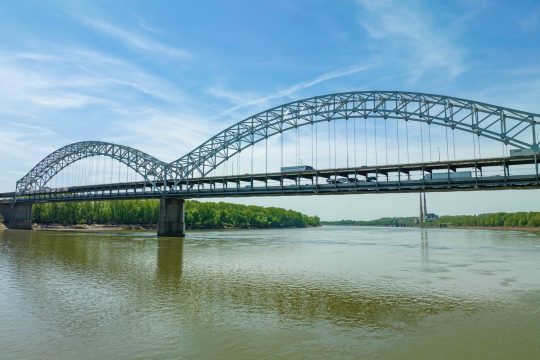
The U.S. Department of Transportation (DOT) Bridge Investment Program (BIP) is offering up to $80 million to support projects that reduce the number of bridges in poor condition or in fair condition at risk of falling into poor condition. Funds may be used to conduct planning for or replace, rehabilitate, preserve, or protect one or more bridges. Competitive projects should improve safety, efficiency, and reliability of the movement of people and freight. The DOT will accept applications for two funding categories:
Planning Grants (no maximum) support projects for planning, feasibility analyses, and revenue forecasting associated with the development of a project that would subsequently be eligible to apply for assistance under the BIP.
Bridge Project Grants (up to $80 million) support projects to replace, rehabilitate, preserve, or protect one or more bridges on the National Bridge Inventory. Eligible activities include, but are not limited to, development phase activities, construction, environmental mitigation, acquisition of equipment, and operational improvements directly related to improving system performance.
Total project costs for Bridge Project Grants must not exceed $100 million. Preliminary engineering for the project must be completed by the time of award notice. Applicants should consider a project's safety, sustainability, equity, and workforce impact.
Eligible applicants include states or a group of states, metropolitan planning organizations that serve an urbanized area with a population over 20,000 (as designated by the Census Bureau); units of local government or a group of local governments; political subdivisions of a state or local government; special purpose districts or public authorities with a transportation function; Federal Land Management Agencies; tribal governments; and multi-state jurisdictional groups comprised of entities listed above. A 20% match is required.
For more information about how Sustainable Strategies DC can help your community with a DOT Bridge Investment Program application, please contact Sarah Marin at (202) 308-7125. For additional information on other funding opportunities, please click here for our website.
0 notes
Text
Biden Administration Launches New Challenge and Prize Competition Tool

The Biden Administration has launched a new website, Challenge.Gov, to mature and scale the use of prize competitions to advance the missions of federal agencies. These challenges are intended to engage public problem solvers in challenges and prize competitions (together referred to as "prize competitions") to identify innovative solutions to critical issues. Examples of open challenges include:
HHS Environmental Justice Community Innovator Challenge to address environmental and climate change health issues through community-driven strategies. Open until January 30, 2024.
Small Communities, Big Challenges to identify innovative approaches local governments have developed for working with rural communities in identifying and addressing environmental health concerns. Open until January 31, 2024.
Community Energy Innovation Prize to help local organizations enact community-led climate and clean energy solutions. Open until February 2, 2024.
Energy Program for Innovation Clusters to incentivize incubators that implement high-impact ideas to support energy startups. Open until February 9, 2024.
For more information about how Sustainable Strategies DC can help your community with a Challenge.Gov prize competition application, please contact Sarah Marin at (202) 308-7125. For additional information on other funding opportunities, please click here for our website.
0 notes
Text
Funding Available to Support Community Programs for At-Risk Children, Youth, and Families

The U.S. Department of Agriculture (USDA) Children, Youth and Families At-Risk Sustainable Community Projects (CYFAR) Program is offering funding up to $160,000 to improve the quality and quantity of comprehensive community-based programs for at-risk children, youth, and families supported. The CYFAR program aims to develop and deliver community educational programs that equip limited-resource families and youth at-risk for not meeting basic human needs with the skills they need to lead positive, productive, and contributing lives.
Eligible projects include, but are not limited to, original scientific research, education/teaching, extension, or integrated projects; programs and activities that deliver science-based knowledge and informal educational programs to people; certification programs; client recruitment and services; in-service training; and instructional materials and equipment. CYFAR programs should support two or three targeted community sites.
Eligible applicants include individual institutions of higher education, independent branch campuses, or branch institutions of a state system. Priority will be given to Centers of Excellence that carry out research, extension, and education activities that relate to the food and agricultural sciences. No match is required.
Applications for CYFAR grants are due by February 15, 2024.
For more information about how Sustainable Strategies DC can help your community with a USDA CYFAR application, please contact Sarah Marin at (202) 308-7125. For additional information on other funding opportunities, please click here for our website.
0 notes
Text
Funding Available to Support Arts Projects in Underserved Communities

The National Endowment for the Arts (NEA) Challenge America Grant Program is offering up to $10,000 to support projects that extend the reach of arts to underserved populations, including those whose opportunities to experience the arts are limited by geography, ethnicity, economics, or disability. Applicants are encouraged to consider partnerships with organizations, both in and outside the arts, as appropriate to their project.
Challenge America supports arts projects in all artistic disciplines. Projects may consist of one or more specific events or activities, and should not cover an entire season of programming. Possible projects include, but are not limited to, art programming, marketing and promotional activities, and organizational planning.
Eligible applicants include nonprofit 501(c)(3) organizations, units of state or local government, and federally recognized tribal communities. Applicant organizations must be a first-time NEA award recipient or be a previous NEA recipient that was not awarded funding in any of three most recent Fiscal Years. All organizations must have a three-year history of arts programming. A 1:1 local match is required.
Applications for Challenge America grants are due by April 25, 2024.
For more information about how Sustainable Strategies DC can help your community with a Challenge America application, please contact Sarah Marin at (202) 308-7125. For additional information on other funding opportunities, please click here for our website.
1 note
·
View note
Text
Funding Available to Support Arts Integration into Community Life
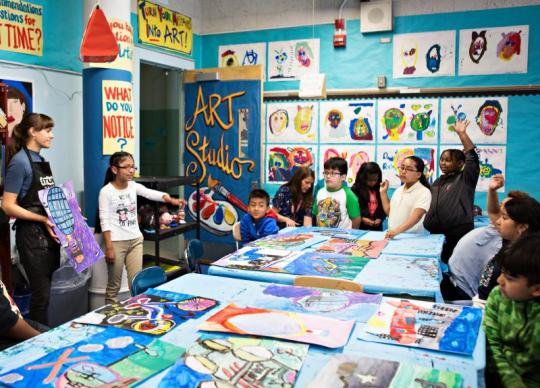
The National Endowment for the Arts (NEA) Grants for Arts Projects (GAP) program is offering up to $100,000 to support arts and culture projects that enhance opportunities for individuals to experience and participate in the arts. The program supports public engagement with, and access to, various forms of art across the nation, the creation of quality art, learning in the arts at all stages of life, and the integration of arts into the fabric of community life. Projects should focus on creativity and/or cultural heritage, livability, learning, and engagement.
A project may consist of one or more specific events or activities. Organizations may apply for any or all phases of a project, from its planning through its implementation. In recognition of the United States of America's 250th anniversary in 2026, arts projects that educate and engage communities in dialogue about the past, present, and future of the nation are encouraged to apply. Applicable arts disciplines include:
Artistic Communities
Arts Education
Dance
Design
Folk & Traditional Arts
Literary Arts
Local Arts Agencies
Media Arts
Museums
Music
Musical Theater
Opera
Theater
Presenting & Multidisciplinary Works
Visual Arts
Eligible applicants include U.S. Based 501(c)3 nonprofit organizations, units of state or local government, and federally recognized tribal communities. A 1:1 local match is required.
Applications for Grants for Arts Projects are due by February 15, 2024.
For more information about how Sustainable Strategies DC can help your community with a NEA Grants for Arts Projects application, please contact Sarah Marin at (202) 308-7125. For additional information on other funding opportunities, please click here for our website.
1 note
·
View note